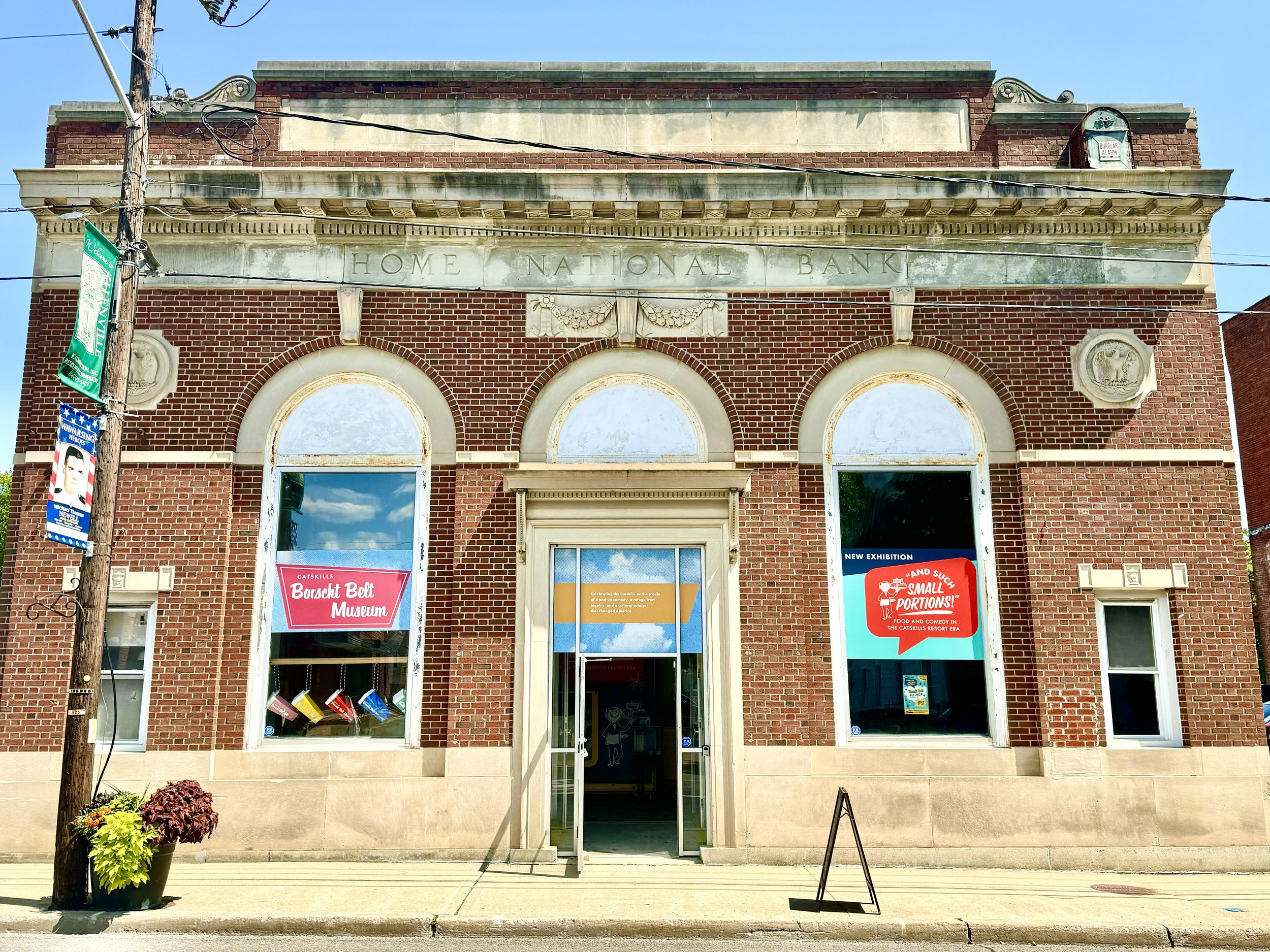THE MUSEUM
A Home with History
The Borscht Belt Museum opened in 2023 in its new home at 90 Canal Street, in Ellenville, N.Y. The museum building is a glorious Neo-Georgian gem built in 1928 for the Home National Bank. For more than a half century the bank helped nurture hundreds of local hoteliers and bungalow colony owners whose ambitions, grit and self-sacrifice defined the resort era.
The Borscht Belt Museum celebrates the golden age of the Catskills resort era, when millions of urban dwellers sought refuge in the mountains of upstate New York, leaving deep imprints on mainstream American culture, from stand-up comedy and comfort food to mid-century modern design and popular concepts of leisure.
A new main exhibit, "And Such Small Portions!" Food and Comedy in the Catskills Resort Era, welcomes visitors now through November 2024. Visit the exhibition page for more information.
And make sure you check our our exciting new additional exhibits: a recreated 1960’s bungalow kitchen and a replica of a 1970’s Kutsher’s hotel room in the museum’s stunning bank vault.
The museum is a dynamic, interactive experience crafted to appeal to baby boomers and Gen Z audiences alike. Immersive moments and imaginative visual elements appeal to social media aficionados. Archival film and audio bring to life the celebrities and comedians whose appearances transformed the Catskills into a way station on the American pop culture circuit in the decades after World War II.
The museum offers a rich array of adult public programming including lecture and film series along with interpretive materials for educators (grades K-12) and interactive activities and workshops for family audiences.
Curatorial Mission
The Borscht Belt Museum focuses on more than entertainment, glamour and design. Our curatorial mission includes weightier themes and narratives embodied by the era: the antisemitism that spurred the creation of a Jewish vacationland, the refuge the Catskills provided to African-Americans, Italian-Americans, Irish-Americans, L.G.B.T.Q. and other communities, and the forces of assimilation and tolerance that eventually helped fuel the grand resort era’s decline.
In addition to its permanent core exhibition, the museum will have space for temporary and visiting shows, ensuring the institution delivers fresh interest to audiences and remains culturally relevant over time. The Catskills continues to serve as a refuge for all – an ethos that finds voice in the museum’s curatorial mission.
“No Hebrews Entertained”
The Borscht Belt was born out of bigotry. At the turn of the 20th century, hotel advertisements in the region often used phrases like “No Hebrews Allowed” and “Gentiles Only” to keep out Jewish patrons. This 1902 advertisement from the Brooklyn Daily Eagle features The Nichols in Liberty, N.Y.
In a delicious twist of history, a Jewish family by the name of Grossinger would later purchase the hotel and absorb it into the sprawling and iconic resort complex that bore their name.
The Collection
The museum has a significant and growing collection of Borscht Belt ephemera. Notable items in the museum’s collection include an expressionist sculpture rescued from demolition and now displayed outside the former Ellenville train depot, and a historically significant and visually spectacular neon sign that once adorned Kutsher’s Hotel.
The Catskills Borscht Belt Museum accepts donations of objects and archival materials that are historically significant. For more information about making a donation, visit our Donate page.








